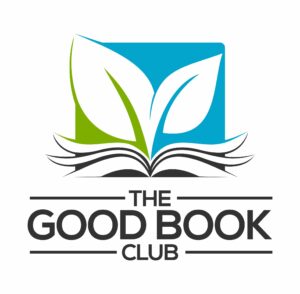Note: As we continue to pray for healing for the Rev. Canon Scott Gunn, this weekly message will feature guest writers from the Forward Movement staff and board of directors. Today’s message comes from Richelle Thompson, Forward Movement’s Managing Editor.
Veggie Tales should not be a primary source for biblical knowledge. But as I started preparing for Forward Movement’s upcoming Good Book Club Bible study, I realized that most of what I knew about the book of Esther came from the toddler days of my children, when the cartoon was on incessant repeat.
Through the singsong of animated vegetables, I learned the story of Esther. But I didn’t know it.
 Over the years, I’ve found that each time I encounter with scripture—even the same passages—I discover something new. Certainly, my understanding of Noah’s Ark has changed since my Sunday School, finger-puppet days. Exodus challenges me in new ways as I learn more about racial injustice and examine my heart for its unbidden prejudices. My response to the Gospel of Luke has varied, from when I was pregnant and scared to when my daughter was a young teen, the age of Mary when the angel Gabriel tells her she will bear a child.
Over the years, I’ve found that each time I encounter with scripture—even the same passages—I discover something new. Certainly, my understanding of Noah’s Ark has changed since my Sunday School, finger-puppet days. Exodus challenges me in new ways as I learn more about racial injustice and examine my heart for its unbidden prejudices. My response to the Gospel of Luke has varied, from when I was pregnant and scared to when my daughter was a young teen, the age of Mary when the angel Gabriel tells her she will bear a child.
The words of scripture don’t change. But I have. Through the various seasons of life, the Word of God speaks to me in different ways. And it’s not just a matter of aging or my own personal experience. The affairs of the world—climate change, political strife, natural disasters—influence how I read and understand scripture.
That’s why reading the Bible can never be a one-and-done thing. Numerous studies show that reading scripture is directly related to our spiritual health and vitality. We know that intellectually, just like we know vegetables (real ones, not animated ones) are better choices than Snickers and ice cream. But it’s all too easy to fall into bad habits or be apathetic to our spiritual health.
On Sunday, one of my favorite prayers from the Book of Common Prayer was the collect—the words at the beginning of the service that call us into worship:
Blessed Lord, who caused all holy Scriptures to be written for our learning: Grant us so to hear them, read, mark, learn, and inwardly digest them, that we may embrace and ever hold fast the blessed hope of everlasting life, which you have given us in our Savior Jesus Christ; who lives and reigns with you and the Holy Spirit, one God, for ever and ever. Amen.
Read. Mark. Learn. Inwardly Digest. What a wonderful process for engaging in scripture! It’s not just a matter or reading or hearing it but about letting scripture nourish our souls and permeate our lives. For me, the most effective way to do this is through a daily guide for reading the Bible — and if possible, to do it in community, in small-group studies or as part of an online program. There are lots of resources out there, but naturally, I’m partial to Forward Movement ones. These include the Bible Challenge series. These books offer 40 or 50 (or even 365) days of daily scripture reading, reflection, and prayer. They’re a great resource for personal and group reflection.
I’m also a fan of the Good Book Club. During the season after Epiphany, Forward Movement invites the church to join in reading through a portion of the Bible—together. Over the years, we’ve moved through the four gospels, Acts, Romans, and Exodus. This year, starting on January 6, we’ll read the books of Ruth and Esther. The Good Book Club offers weekly emails as a companion through the readings, study guides for group discussion, and a live, online ChurchNext class. I might have learned the story of Esther from dancing cucumbers, peas, and leeks, but now it’s time to inwardly digest the Word of God. I can’t wait.
Yours faithfully,
Richelle Thompson
Managing Editor
More from our ministry:
Explore Luke’s Gospel with this reflection from author Miguel Escobar
New from ChurchNext: Introducing the Quaker Tradition
Follow the narrative of the Bible with The Path
Read through biblical canticles in our Advent devotional, Holy Is His Name



